Traveler friends Thomas and Sabine from Bavaria, Germany, recently sent me a typically entertaining message.
“Next week, I’ll have a talk to around 100 interested people on Explorer-Ostsee-Camp concerning the question 4WD in Travel Reality—How much 4WD do you really need? My personal thoughts about that are only some of all possible. I’d love to add some quotes from other travelers. Not quotes of just anybody, but somebody I think has an experienced, well-founded meaning to that topic.”
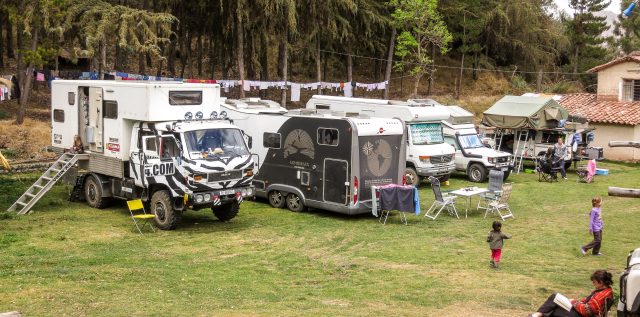
Firstly, English is Thomas’ second language, making his messages delightful to read. Secondly, the question is posed in such a way as to suggest that there are variations or degrees of 4WD, and some may be better suited to overland travel than others. Yes, there are degrees of 4WD, beginning with limited slip diffs and all-wheel drive and ending with portal axles and three lockers. We assumed dear Thomas was looking not only for our thoughts with regards to four powered wheels but also whether such capability was, in fact, necessary for modern overland travel (preferably across borders and continents). In this context, we will discuss overland travel as an international, long-distance pursuit as opposed to the localized exploration of off-road routes and trails.
Thomas asked three questions, and although he asked for short answers, I opted to offer to wind out a bit with my answers. I was flattered to be asked as Thomas and Sabine traveled the world in a 4WD Mercedes truck and are well regarded and well known in Germany and Europe.
Question 1
Why do you travel in a 4WD vehicle?
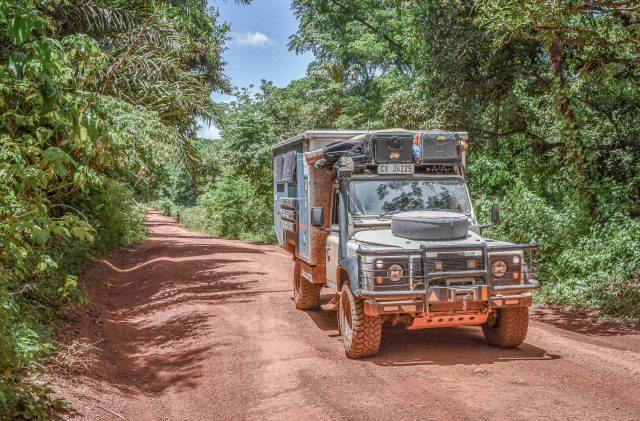
A person’s style of travel determines the type of vehicle which will suit them best, as not all overland travelers need a fully equipped off-road vehicle; some prefer the relative comfort of vans or even small motor homes. To be clear, 4WD is not necessary to travel the planet, but there are significant benefits. As more and more people choose to travel by vehicle, the unique places which were once quiet and serene are now often densely packed with vehicles. The 4WD capability allows a person to go farther than the crowds, test their skill levels and courage, and be rewarded with an experience not shared by the majority. We prefer to camp alone or in isolated areas.
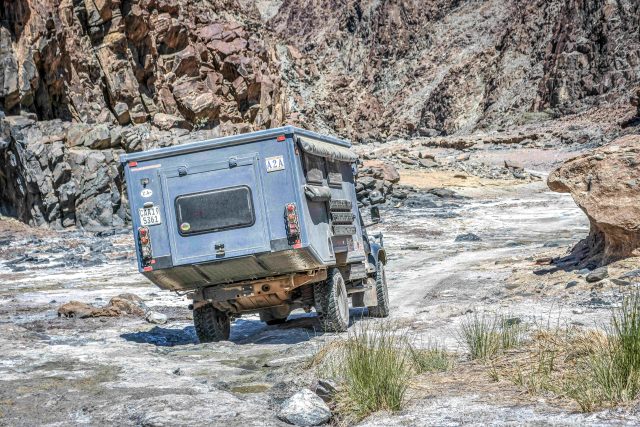
Practically speaking, a capable vehicle is an insurance policy that enables an explorer to travel confidently should the road conditions unexpectedly deteriorate in some distant corner of the globe. Another significant benefit of most decent 4WD vehicles is that they will feature a transfer gearbox that offers low range. Low range, or the crawler gear, is incredibly useful for off-road driving and when the vehicle requires extra power or engine braking on steep grades. It must be noted, however, that not all 4WD systems are equal. While I can employ low range on tarmac with my permanently four-wheel-driven classic Defender, this is not possible with vehicles such as an older Dodge Ram 2500 and other modern vehicles where low range is only accessible in 4WD L, and when engaged, the front wheels cannot spin independently. This feature may be used if the road surface is slippery, such as in heavy rain and snow. We have often employed the 4WD capability of our vehicle to address challenges on the road, particularly during the wet season and at high elevations. Ultimately, the more concentrated power and capability a vehicle has, the more liberating the experience.
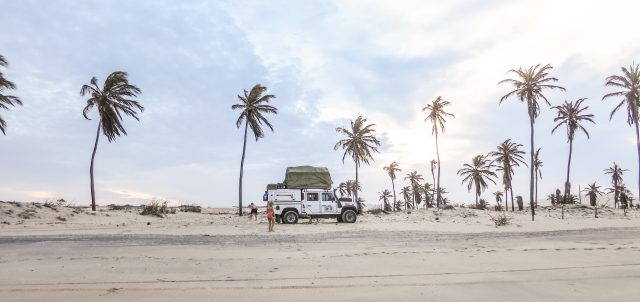
But, ultimately, and as stated, the explorer’s style of travel dictates the type of vehicle driven. We are adventurous, travel solo, and love to get far from the beaten track—we have crossed the northern Amazon and West Africa in the rainy season, spent weeks driving remote beaches in Brazil and the deserts of Namibia, and have crossed mountain trails in Nigeria, Morocco, and Mexico. Our Defender has been modified to offer the comforts of a small motor home or van without compromising the vehicle’s off-road capabilities. For us, a robust, solid-axle 4WD is essential.
Question 2
Could you travel without 4WD?
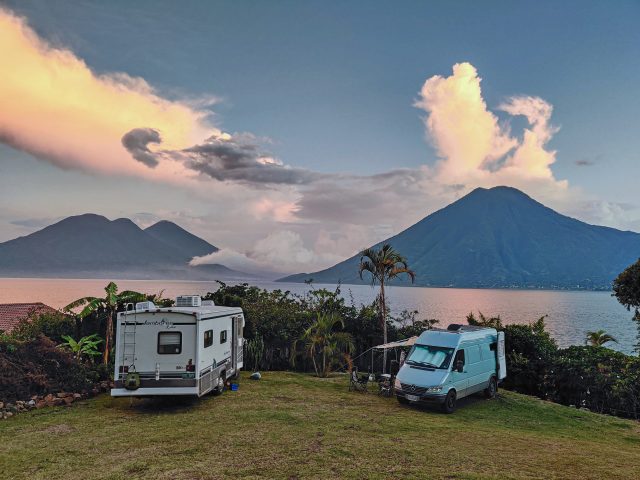
We could if we changed our style of travel either temporarily or permanently. Travelers evolve, and eventually, we might tire of the anxiety of adventure and the risk of remote exploration (while remembering the consequent elation fondly). As we age, it is foreseeable that comfort, culture, and cuisine may become more alluring than campfire meals on remote beaches, and a gentle road trip with a few dirt roads somewhere in Eurasia may replace white-knuckle exhilaration in the Congo or Colombia. For instance, a 4WD vehicle is not necessary for a tour of Europe, and a vehicle that offers a “live-in” arrangement with a heater and a working zircon, built-in bathroom, and wine rack is better suited to that style of travel. I could imagine spending six months camper vanning around Europe or New Zealand, but I seriously doubt that we will ever permanently cross over to the dark side.
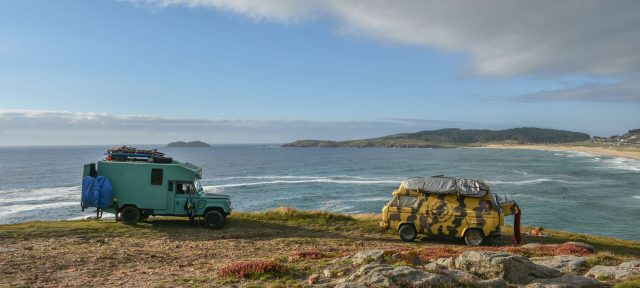
A compact camper van with all-terrain tires (and a decent recovery kit) remains capable when driven by a skilled driver. You would be amazed where a van or even a compact sedan can go in the hands of someone with the necessary determination. A camper van will likely suffer damage at the end of a terrible, corrugated, and muddy road, while my Defender will be relatively unscathed, begging for more. It is soul crushing to be overtaken on a muddy mountain pass in Cameroon by a family in a Renault Scenic, but they have a home to sleep in; we carry ours wherever we go.
Question 3
What feature of a vehicle is more important than 4WD?
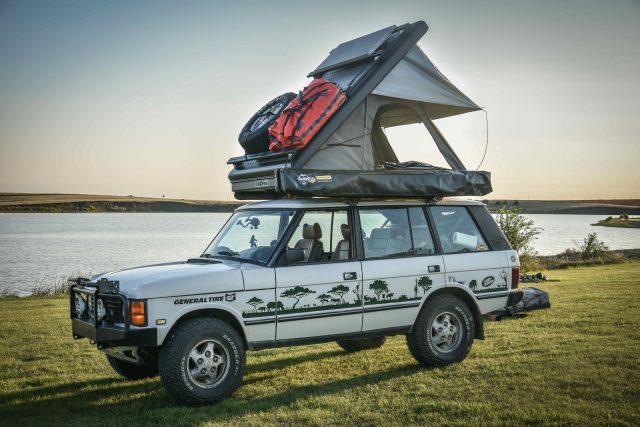
Reliability. It may seem obvious, but a vehicle you can confidently rely on to travel long distances is more liberating than a technically competent vehicle that is simultaneously a liability. We recently drove a Range Rover Classic across the USA with a plan to drive as many off-road trails as possible but were unable to take advantage of the vehicle’s 4WD capability as the vehicle was forever breaking down. We never had the confidence to stray far from the well-beaten path and discovered to our horror, that we had traded comfort for no good reason. Believe me, sleeping on a cot outside in the middle of a Georgian swamp in August is a recipe for disaster and mutiny.
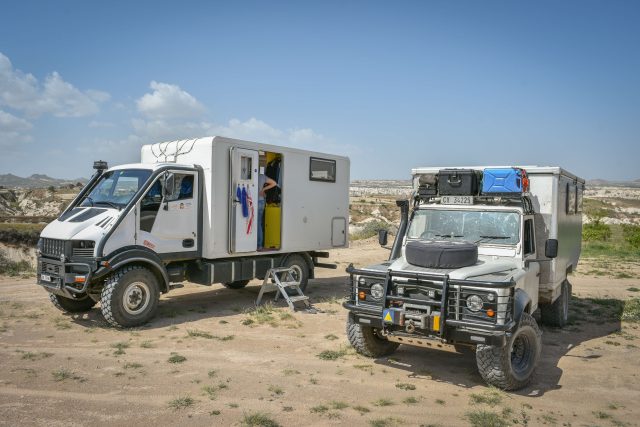
Secondly, relative comfort for day-to-day living is more important than 4WD, especially if you intend to be on the road for a long time (i.e., more than a year) you travel with a family. Being refreshed, well rested, clean, well fed, and healthy enables you to mentally and physically deal with the challenges of life on the road, of which there are many. Yes, there will be areas you will not be able to explore, and you will mostly be relegated to the beaten path. But when you do eventually spin down to the frame on the beach or can’t drive out of a sloped, wet Central American campsite, you will realize that the sky will not fall on your head, and you will find a way back onto solid ground.
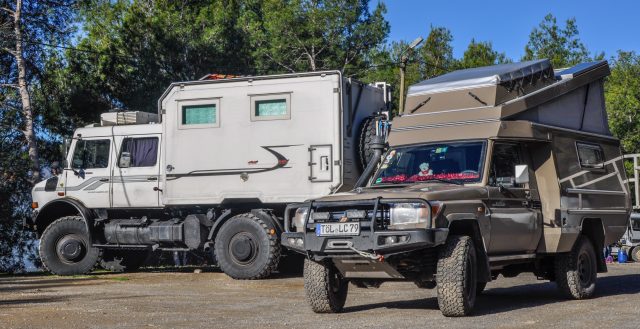
So, before you head out and drop a ton of cash on a 4WD vehicle, establish whether you actually intend to use the vehicle for its intended purpose. We have met too many people who invested in a kick-butt Toyota on 33s when a comfortable van would have suited their style of travel infinitely better. If you want to push yourself to the limit, you will need a vehicle capable enough to not only take you there but also bring you back.
Our No Compromise Clause: We carefully screen all contributors to ensure they are independent and impartial. We never have and never will accept advertorial, and we do not allow advertising to influence our product or destination reviews.


